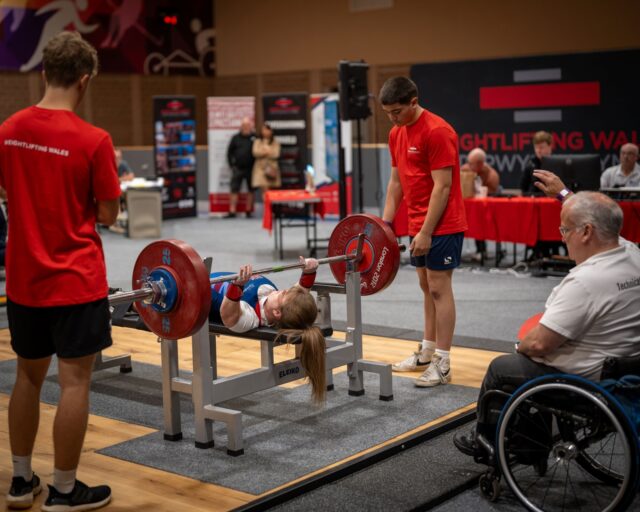The ultimate upper body strength test. Like Weightlifting, Para Powerlifting requires strength, technical ability, and mental toughness.
Para Powerlifting is a singular discipline bench press competition, where athletes lay flat on a specially designed para powerlifting bench and then aim to lower a horizontally weighted bar from arms length, to the chest and return the bar under control to the same starting position.
The weighted bar is placed on two racks and the lifter must take the bar (usually assisted by loaders or their coach) until the lead referee commands ‘start’ (this occurs when the arms are fully extended and locked). The lifter must then lower it to his or her chest, hold it motionless - called a pause - and then press the bar upwards evenly to arms’ length where both arms should be locked out simultaneously until the lead referee issues the command ‘rack’. The lead referee and two side refs will then indicate a successful or unsuccessful lift by holding up white or red pads. A white pad indicating a 'good lift' and a red pad indicating a 'no lift'.
There are three attempts permitted in a para powerlifting competition. Lifters must increase the weight attempted by at least 1kg following a successful lift. A fourth lift may also be attempted for a potential record, but this does not count towards the final result of the competition. Athletes are allowed a maximum of two minutes between when their name is called for their turn and the start of the lift. Athletes must also leave the competition platform within 30 seconds of completing their lift.
The athlete with the highest bench press in their gender and weight category is the winner. In the event of a tie in the best lifts in the same category, the winner is the athlete that weighed in the lightest and lifted the joint heaviest weight. If both athletes have an identical body weight, a reweigh is done.
















